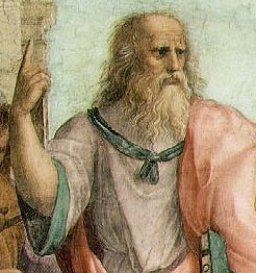 |
| An Advertisement for American Eagle Outfitters |
About a month ago, I was in my local mall to purchase a pair of jeans for the autumn season. As with any mall, each store hosted large advertisements with the latest fashions and looks, featured by boyish, soft-looking men and aggressive, voluptuous women. Each display promised me, the consumer, such a clean cut look that would attract the most beautiful of women... if I only bought their product.
It's a seductive message, to be sure, and we are constantly bombarded by it. Women, I am sorry to say, have borne much of this commercial pressure and it can wear on the self-confidence. But it is fair to say that both sexes have suffered from this strain. Physical beauty has become an obsession of our society.
But, really, what criteria determine physical beauty? Some say that a particular combination of the right physical features make a person physically beautiful; Large eyes, full hair, "hourglass" body form, etc. for women and muscular, "V-shaped" body form, etc. for men. There have been many studies in an attempt to discover the mathematical proportions that make a beautiful person (size of eyes in relation to mouth, in relation to length of nose, in relation to etc.). I do believe there is something to say about these features with regard to sexual attractiveness. But is that all that physical beauty is?
I believe there is already a beauty product that has existed as long as human beings have. I started writing this post over a month ago, trying to find a logical, philosophical argument to present it with, but my own rational power has failed to describe what I know in my soul to be the truth. So, since beauty product advertisements make no appeal to reason whatsoever to get you to buy their product, I feel that I must do the same. Here goes.
Step right up, step right up! Gather 'round, ladies and gentlemen, and see the most successful advancement in beauty care! Since the dawn of human existence, this product has transformed men and women alike into supermodels! Say "goodbye" to flab and fat, and say "hello" to a solid six-pack physique and captivating curves! Got repelling wrinkles or unsightly crow feet? This'll give you that elegant, and mature smile that you've always wanted! But, ladies and gentlemen! You won't find this product in stores! No, no! Countless have tried, but this miraculous beauty product cannot be bottled, bought, or applied. It's fabulous! Stupendous! Phenomenal! And it's called!.... VIRTUE.
No, I am not kidding. Not only does virtue solve all your soul's issues, it can also solve many of your physical attractiveness issues. No lie. I am a true believer in this.
To examine this, I first draw your attention to the physical appearance of people who may be suffering from some degree of vice. The substance abuser, whether drinker, smoker, druggie, and so on, is unattractive in appearance and behavior. Their physical dependency on their addiction will leave them haggard and grim-looking and whether they get their fix or not, their behavior is sure to be erratic and unappealing. Also, people who lack virtue are undisciplined, resulting in obesity/anorexia or sexual obsession. Lust is a bit more challenging to define in terms of physical appearances. But those consumed with sexual obsessions will try to dress and appear more as objects of sexual gratification. Whether it be a man or a woman, this desire is quickly obvious based on both appearance and behavior of an individual. Think about it: it's the difference between an encounter of courtship and one of blatantly "hitting on" someone.
Obviously, this list is far from extensive, but the groundwork is sufficiently laid. Now, what are examples of virtue working towards making one more attractive?
If one possesses virtue, one must also possess discipline. Virtue is not something that one acquires casually. It takes effort, perseverance, and hard work. In order to accomplish this, one needs discipline, which is the control and authority exerted by one's will over his/her passions. It begins with small things, but this small efforts ultimately play a vital role in developing great virtues in a man or woman. Discipline keeps you on that diet you've been needing to go on. It keeps you from drinking too much, smoking too much, and away from illegal substances entirely. It also keeps your sexual desires healthy and in-check.
Another aspect of virtue is joy. One cannot be virtuous, achieving the purpose of his nature, and not be filled with irrepressible joy. Joy is subtle and sublime because its specific physical manifestation in each virtuous individual is sometimes difficult to pinpoint. This is because the physical manifestation of joy is unique to each individual, making that person an exclusive illustration of elegance.
 |
| Joy: Archbishop Timothy Cardinal Dolan |
Wait, how does joy factor into physical beauty? As far as society is aware, joy is just a momentary feeling and beauty is sex appeal. Joy is actually a unifying state of being that extends across all moments of one's existence. It is living life "properly" and "fully". Essentially, you are getting the most out of life when you are joyful. And because human physical beauty is incomplete without that which animates the body, a soul (for example, you would not call a corpse physically beautiful), joy and fulfillment in one's soul is manifest in the animation it brings to the body. In simpler terms, if a soul is good, the behavior and movements of that person will be good and contribute overall to the person's physical beauty.
This is not the easiest concept to understand without some examples. Ballet, for instance, requires a dancer to have complete, disciplined control over her body to accomplish the very precise movements of the art. This is only obtained through frequent practice and focus. Of course, natural skill is involved, but without practice and focus, the talent is useless. However, after time, the effort put into achieving the different positions of the dance become second nature; sort of like "muscle memory". In another example, an orator must be able to control his tone of voice and rhetoric in such a way as to maximize the impact of his words. This also utilizes natural talent to some degree, but it requires concentration and discipline to develop.
Tying this all together, because the soul is the body's source of movement, the goodness of the soul contributes to the goodness of the movement of the body. Furthermore, it is not a goodness of movement that can be faked because it takes practice to achieve. Once achieved though, it becomes second nature and one does not even have to try to move beautifully: it just happens! Basically, that look he gives you isn't one that desires animalistic conquest of your body; it's one of complete appreciation for you, body and soul. That handshake your colleague gives you isn't a limp, dead fish; it's an energetic, welcoming grip that exudes courage and warmth. That compliments she pays you isn't fake or dubious; it's completely genuine and you can innately see that in her eyes.
To conclude: Ok, maybe Virtue isn't really a beauty product that can turn Joe Schmo into G.I. Joe, nor Plain Jane into Ms. America. But physical beauty is not just about sex appeal. It is also about the grace and beauty of your movements, and interactions with other people, which I think have a more lasting impression than physical looks alone. Even the world's best supermodel instantly loses her splendor if she's constantly scowling off-camera. So it might just be true, virtue's discipline will help you to shed those extra pounds, but more importantly, virtue's joy will turn that scowling-old-woman face into a laughing, grandmotherly smile. It is certainly not the quick and easy beauty product that you get from the mall, but trust me, the results are worth it.











.jpg)




